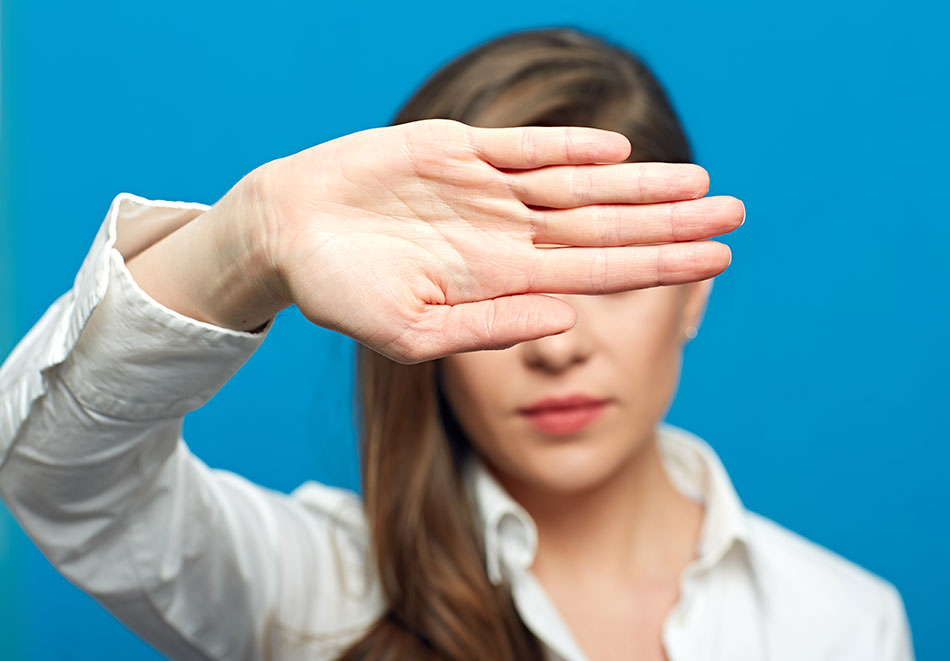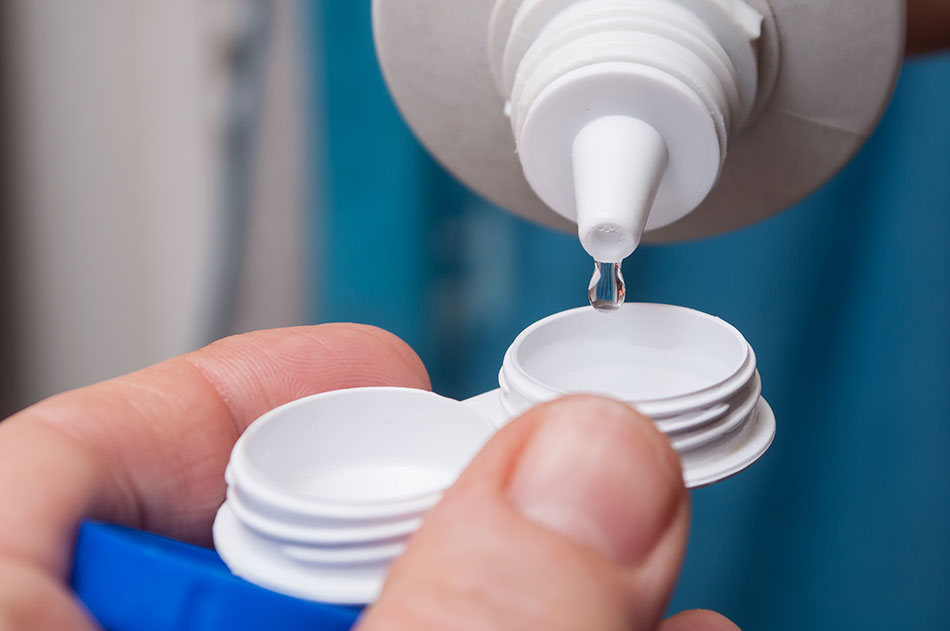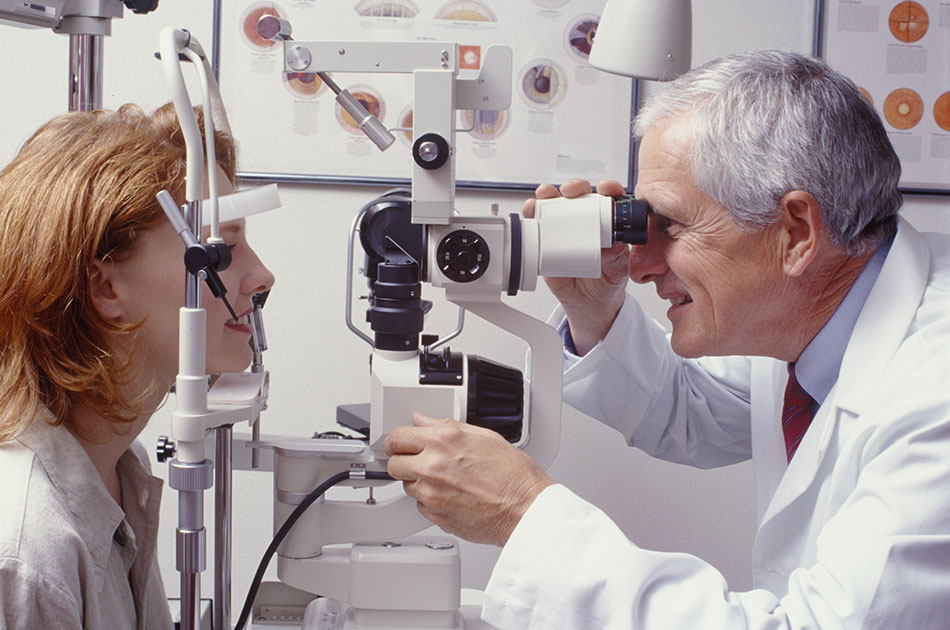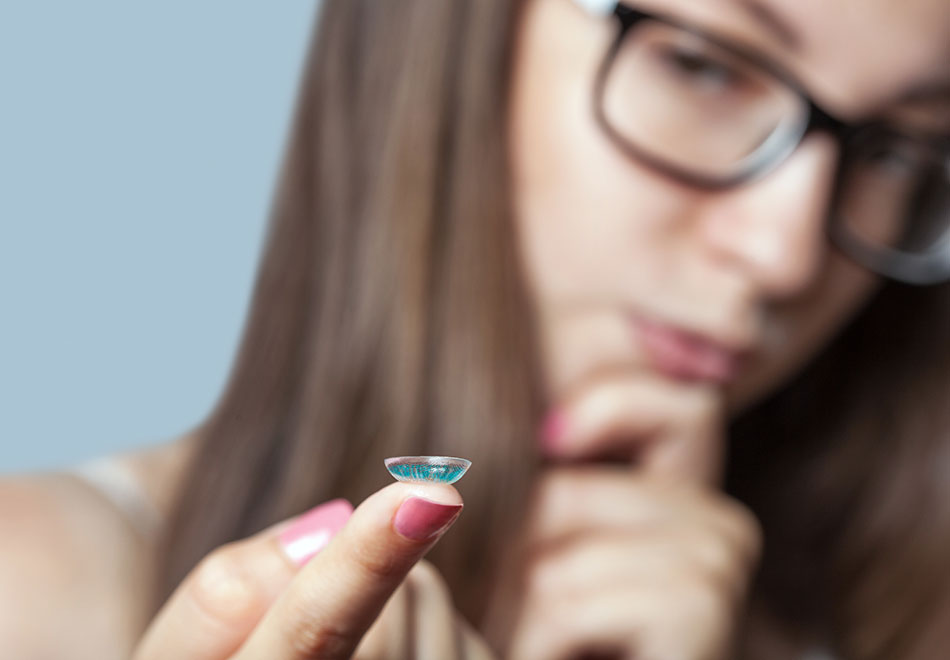Why Sharing Contact Lenses Is a Bad Idea

Sharing is caring. That’s what your mom or dad told you when they insisted that you share your candy with friends. You were probably angry, but your parents were doing the right thing. They were teaching you a valuable life lesson.
That lesson eventually stuck. As you got older you thought nothing of lending your sister your clothes. You let your best friend use your hairbrush. But there are limits to sharing, like when it’s bad for you.
Sharing contact lenses is a line you shouldn’t cross. Even if it’s your sister, best friend, or most loved person on the planet, never share your contacts! You can damage the health of your eyes and put your vision at risk.
Do you really want to roll those dice? Here are the top five reasons why you should never share your contact lenses, colored or otherwise.
1) Bacterial Infections
Bacteria are everywhere. Most bacteria are harmless or even help maintain good health. But when harmful bacteria, fungi or viruses enter the body, they can lead to infections.
Because our eyes give us sight, they are one of our most important organs. But they are especially vulnerable to infections. The only thing protecting the internal mechanisms of the eye is the cornea.
This thin, transparent layer of tissue is also responsible for refracting light. The cornea accounts for two-thirds of the eye’s total optical power. A serious injury to your cornea could make you completely blind.
Keratitis is a painful inflammation of the cornea linked to improper use of contacts. Keratitis accounts for one million doctor and hospital visits per year, at a cost of $175 million for the U.S. health sector.
Wearing lenses worn by someone else greatly increases the risk of bacterial infections. Never, ever, share your contact lenses!
2) Differences in Care Routines

Although you may be similar to your best pal, there are differences in your care routine.
The best way to protect your eyes is to practice good hygiene. You must always wash and dry your hands before inserting or removing your contacts. Before each insertion, you should inspect your contacts for any damage. Then you would rinse your contact lenses with fresh lens solution.
After removal, carefully wash your contacts with the solution. You also need to wash and air-dry your contacts case each day. And it’s critically important that the lens solution in your contacts case be fresh. Yes, that means replacing it every day to prevent bacteria.
Caring for your contact lenses is a delicate process that requires dedication. Can you be perfectly sure that another person will stick to that routine, just like you?
3) Contact Lenses Are Not One Size Fits All

The American Academy of Ophthalmology (AAO) defines cosmetic or costume contact lenses as those that change the appearance of your eyes. Costume lenses can change the color of your eyes or the shape of your pupils. The effect can be subtle or dramatic and these lenses come with or without vision correction.
Around Halloween new retailers pop up everywhere selling cosmetic colored contact lenses. Stalls selling these lenses appear in the malls or at weekend markets. New retailers also show up online.
Your eyes aren’t perfect spheres like golf balls. No two pairs of eyes are exactly the same. A contact lens prescription includes the precise measurements of your eyes. Purchasing lenses without a prescription is very dangerous. Like pantyhose, if the packaging on costume contact lenses says one-size-fits-all, it’s lying.
Costume or decorated contacts are often advertised as fashion accessories, and may seem quite harmless. But the same way ill-fitting shoes rub your heels and pinch your toes, ill-fitting contact lenses can irritate your eyes. This irritation can actually cause the development of corneal ulcers.
A corneal ulcer is an open sore that, if not treated immediately, can require a sight-saving corneal transplant.
People who share contact lenses or wear costume lenses that are ill-fitting are at a greater risk of corneal ulcers. You are officially warned!
4) Prescription Problems

There are many reasons for buying your lenses from a reputable seller. Only reputable sellers can guarantee the quality of their products and ensure that you’re protected as a consumer. But it’s also important to get the right prescription for your lenses.
As stated before, contact lens retailers must request a valid prescription (from a recent eye exam) from their U.S.-based customers. If you can’t trust a retailer to uphold the law, then you probably can’t trust them to take good care of your eyes.
Cosmetic colored lenses can come in a range of prescriptions. But if lenses are being sold without a prescription, then you can’t be sure about what you’re getting. And if you’re borrowing the contacts from a friend you have no way of knowing what you’re putting in your eyes!
Wearing ill-fitting lenses or the wrong prescription can cause discomfort and blurred vision. You may also experience eye strain and headaches even if you only wear the contact lenses for a few hours.
Please don’t think to use the prescription for your glasses to get contacts. It’s a bad idea! Contact lenses sit on your eyes, while glasses sit about an inch away from your eyes. The difference in the distance from your eyes makes these two types of prescriptions quite different.
The only way to be sure that your contacts are right for you is by consulting your optometrist. Buying cheap lenses online or wearing a pair from a friend might save you a few bucks. But your valuable eyesight is at great risk. Don’t be penny wise and pound foolish!
5) Costly for Your Pockets!
There are many health dangers from sharing your contact lenses. However, there is also the financial implication if you happen to be the source of all your friends’ colored contacts.
Sharing your contact lenses can wear them out much faster. Sometimes your friends may “forget” to return your contacts. You may also be willing to gift away your contacts. At any rate, it is expensive to replace your contact lenses more frequently than if you were the only one using them. You need to be financially savvy and health-conscious. Keep your contacts for yourself!
Can You Share Contacts That Are Unworn?

The short answer is no. Even if your friend bought special lenses to go with her cat costume, but decided to go as Betty Boop instead, you shouldn’t wear those lenses. The reasons for not sharing contact lenses still apply:
- An illegal supplier may sell contaminated lenses (due to poor packaging procedures).
- These contact lenses are still not fitted to your unique eyes.
- These contacts may contain a prescription that’s harmful to your eyes.
Trust us, it’s not worth it! But if you want to change your look or complete your costume, consider colored contacts like Freshlook Colorblends or 1-Day Acuvue Define.
You can achieve the dramatic look with a subtle eye color-change and the right eye makeup! Just do all that you can to avoid risking your eyesight in the process.
Your Contact Lenses Are for You Alone!
You should now be clear about all the reasons why sharing contact lenses is a bad idea. Your eyes are the windows to your soul and vital for your daily life. Don’t risk them!
There is a wide range of colored contact lenses that are available to choose from. Make them yours, and in this case, you’re allowed not to share.